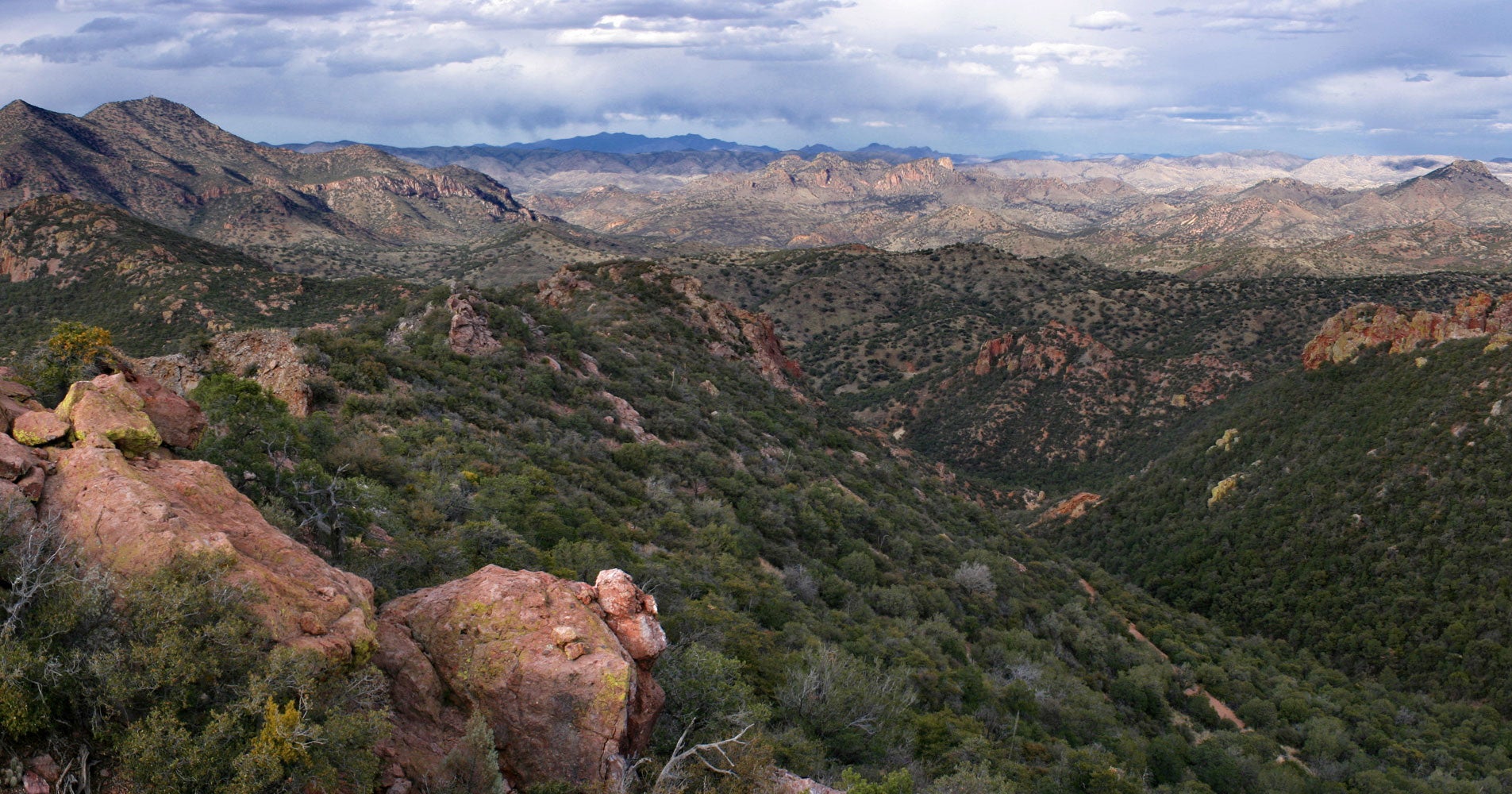Lawsuit Targets Mineral Exploration Threatening Arizona’s Patagonia Mountains, Endangered Species
Conservation groups sued the U.S. Forest Service today to challenge its authorization of two mineral exploration projects
Contact
Conservation groups sued the U.S. Forest Service today to challenge its authorization of two mineral exploration projects in Arizona’s rugged and biologically diverse Patagonia Mountains, just north of the U.S.-Mexico border. The federal agency’s recent approval means drilling operations could begin immediately and continue around-the-clock for seven years.
“The Patagonia Mountains and Sonoita Creek Watershed are the lifeblood of our beautiful region,” said Carolyn Shafer, board president and mission coordinator of the Patagonia Area Resource Alliance. “Our priority must be to protect this critical habitat, which is the source of drinking water, clean air, and the biological wealth that fuels our regional nature-based restorative economy.”
The Sunnyside and Flux Canyon exploration projects, seeking copper and other minerals, would damage fragile riparian areas and deplete and potentially contaminate precious aquifers and surface water. The projects also threaten critical breeding and migration habitats for endangered species like Mexican spotted owls, yellow billed cuckoos, jaguars and ocelots.
“Reckless exploratory mining has no place in the wild, biodiverse Patagonia Mountains,” said Laiken Jordahl, Southwest conservation advocate at the Center for Biological Diversity. “Endangered species like jaguars, ocelots, and Mexican spotted owls already face threats from border walls, climate change, and habitat loss. The last thing these rare animals need is a new copper mine ravaging the heart of their Arizona range.”
Today’s lawsuit, filed in the U.S. District Court in Tucson, says the agency violated the National Environmental Policy Act by failing to analyze the cumulative harm Sunnyside, Flux Canyon, and other nearby mineral exploration projects would have on public lands, water, and endangered species.
“These projects threaten to drive away imperiled species and cut off wildlife movement between Mexico and the American Southwest,” said Scott Stern, associate attorney for Earthjustice’s Biodiversity Defense Program. “Federal agencies have misread or misconstrued the applicable science to discount the significant impacts from these mining projects, in violation of the National Environmental Policy Act. This needs to be sent back to the drawing board so the government can properly consider the potential harm to the land, water, and species of southeast Arizona.”
The Sunnyside and Flux Canyon projects would construct up to 37 well pads for drilling exploratory shafts thousands of feet deep, threatening to contaminate groundwater and jeopardize the water supply of the nearby town of Patagonia.
“These exploratory drilling projects are the first steps toward an environmental disaster for the Patagonia Mountains,” said Rob Peters, executive director of Save the Scenic Santa Ritas. “The Patagonias, like the Santa Ritas, and other sky island mountains in southern Arizona, hold headwaters that fill streams and replenish groundwater. A single mine can suck up billions of gallons of groundwater every year, depleting water tables, drying wells and contaminating water. In Arizona, we can have commercial-scale mining in our mountains, or we can have enough water for other needs, but we can’t have both.”
The Patagonia Mountains provide a key corridor for jaguars and ocelots moving north from Mexico through a border wall gap to their range in the United States. Recently a jaguar is believed to have traversed the Patagonia Mountains before being documented in the nearby Santa Rita Mountains. The mining projects also threaten to harm Harshaw Creek, a fragile riparian area teeming with biodiversity.
“Wild places like the Patagonia Mountains are too biologically important to be sacrificed to mining,” said David Robinson, director of conservation advocacy at the Tucson Audubon Society. “The Patagonia Mountains are home to more than 100 federally endangered, threatened, and sensitive species, and are also an essential migration corridor. Scientists have designated it one of the world’s biodiversity hotspots most in need of protection. No mining method or environmental mitigation can sufficiently safeguard it.”
Earthjustice and the Western Mining Action Project are representing the Patagonia Area Resource Alliance, the Center for Biological Diversity, Save the Scenic Santa Ritas, the Tucson Audubon Society, Earthworks, the Arizona Mining Reform Coalition, Friends of the Santa Cruz River, and Friends of Sonoita Creek in the lawsuit.

Additional Resources
About Earthjustice
Earthjustice is the premier nonprofit environmental law organization. We wield the power of law and the strength of partnership to protect people's health, to preserve magnificent places and wildlife, to advance clean energy, and to combat climate change. We are here because the earth needs a good lawyer.